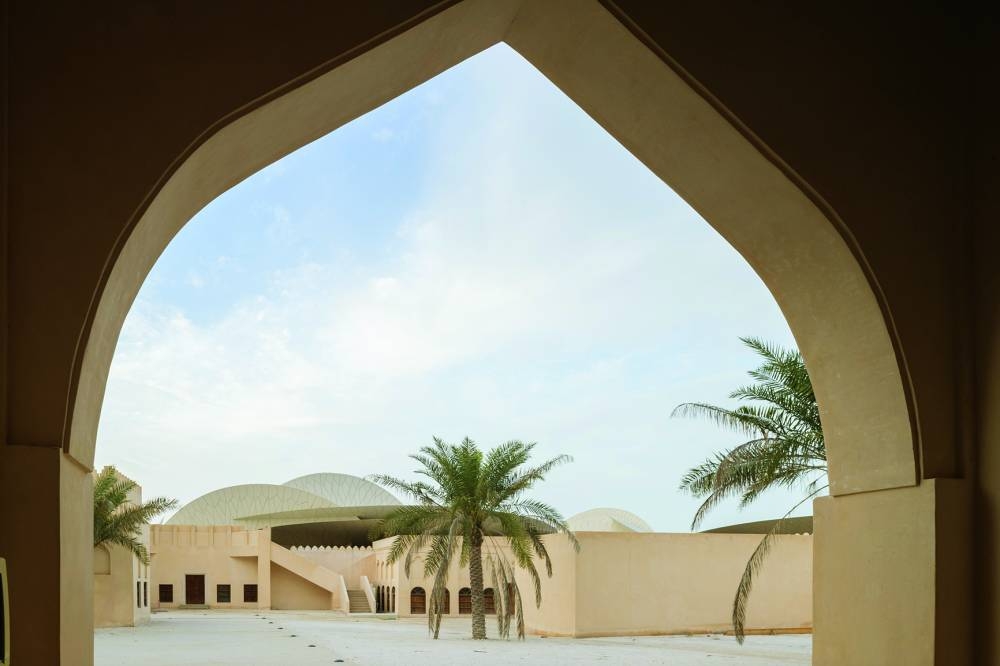In recognising the legacy and the significance of the National Museum of Qatar (NMoQ) in the region, the United Nations Educational, Scientific and Cultural Organisation (Unesco), alongside Qatar, is set to celebrate the institution’s 50th anniversary, which will be officially announced during the 42nd Session of Unesco’s General Conference this month.
The celebration will take place at NMoQ in 2024, as well as on a global scale, with festivities planned in Qatar and at Unesco Headquarters in Paris in 2025.
In a press statement, Mohammed Saad al-Rumaihi, acting CEO of Qatar Museums (QM), said: “We are proud to announce the recognition of the NMoQ as part of the Unesco anniversaries list that contributes to the enrichment of the international cultural, heritage and museum scenes. This affiliation is a testament to the 50 years of commitment and hard work put forth to preserve our nation’s rich heritage and culture.
“As NMOQ speaks the tales of history of the Qatari community, their achievements, and future ambitions which can now be celebrated worldwide with the aim of uniting communities and enriching them with culture. I look forward to celebrating this achievement internationally in 2024 and 2025.”
Dr Fatema Hassan al-Sulaiti, director of International Co-operation and Government Affairs at QM, said: “Under the leadership of HE Sheikha Al Mayassa bint Hamad bin Khalifa al-Thani, chairperson of QM, we are shaping a remarkable chapter in the narrative of cultural diplomacy and heritage preservation of Qatar. With the recognition of NMoQ’s 50th anniversary by the Unesco, we are further solidifying our commitment to these important initiatives.
Established by QM, the NMoQ, under the directorship of Sheikh Abdulaziz al-Thani, boasts an iconic design by architect Jean Nouvel. Inspired by the desert rose, the interlocking disks surrounding the historic Palace of Sheikh Abdullah bin Jassim al-Thani organically evoke Qatar's culture and climate.
The museum's sand-coloured concrete seamlessly blends with the local environment, while the strategically placed overhanging elements create shadows, allowing visitors to explore outdoor spaces while protecting the interior from harsh light and heat.
Organised chronologically, the museum takes visitors on a journey from pre-human habitation to the present day, culminating in the meticulously restored Old Palace, offering a comprehensive and immersive experience.
NMoQ director Sheikh Abdulaziz al-Thani said: “NMoQ first opened its doors to the public in 1975, solidifying it as one of the first national museums in the region. Before being known today as NMoQ, the museum used to be the Old Palace, which was once the home of the ruler of Qatar.
“In 1980, the museum received the prestigious Aga Khan Award for Architecture for its restoration. Since then, NMoQ has been a testament to our cultural heritage and the achievements we have accumulated throughout those years. Over these decades, NMoQ transformed into more than just a museum and has become a living, breathing chronicle of our nation's history. As we look forward to the future of NMoQ, we carry with us the legacy of the past.”
Dr Nassir al-Hinzab, Qatar’s permanent representative to Unesco, said: “This recognition highlights the meticulous efforts invested in preserving and promoting the legacy that resonates through the exhibits and narratives encapsulated within NMoQ. As we navigate the global map of cultural significance, Unesco’s endorsement solidifies the position of Qatar as a custodian of historical narratives, contributing profoundly to the heritage of Qatar.”

Established by QM led by HE Sheikha Al Mayassa bint Hamad bin Khalifa al-Thani, the NMoQ, under the directorship of Sheikh Abdulaziz al-Thani, boasts an iconic design by architect Jean Nouvel.
